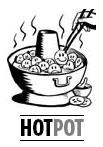Life and Leisure
Time to put learning to the test
By Stuart Beaton (China Daily)
Updated: 2010-10-19 07:56
 |
Large Medium Small |
At the start of this semester, I was asked by the university I work at to give the students a pre-test, a sort of mock exam to establish their English level. Each lecturer was presented with a USB memory stick, which contained all the items needed to give the test.
Or so I thought.

I went back to my apartment, and looked at what I'd been given: an MP3 file of the listening test, the exam paper, and the answer key. I popped open the exam paper, and found that it was a four-page document. A quick check of my printer told me that I wouldn't have the ink necessary to print out the more than 150 copies I'd need to cover my six classes, so I rang the dean, and asked him if he had a solution to the problem.
"Just give the exam without the paper. It'll be fine," he replied, citing the overall cost of the printing as a reason for not producing the paper.
"Make it a purely listening test, and get them to write down what they think the answer should be!"
The next day, I stood up in front of the first class, and told them what was happening. I carefully explained that the test wasn't my idea, and that they were to try their best to answer the questions with whatever they thought would be the correct answer.
Of course, questions like "Which piece of the paper did the article not mention?" are a little hard to answer without something to chose from, and things went downhill from there.
As I collected the papers from the class, I noticed that one student hadn't put any answers down at all. Holding aloft the blank sheet, bereft of even a name at the top, I asked the unfortunate lad why he had done nothing.
"I didn't have a pen, sir", came the reply.
Professionalism stopped me at that point from casting him out of the nearest window.
Not everyone is good at exams. When I was a student, I carefully chose courses that didn't rely on exams, but used continuous assessment to give a final mark. I found that when I was given time to research and work on an assignment, I was under less pressure, and thus performed better.
My students are constantly bombarded in other subjects with tests and exams, so I am trying to make my English course less stressful for them. Although there is a final exam, the majority of their marks are earned by completing assignments throughout the semester, giving them plenty of time to reach the goals set for them.
However, I'm often asked: "Will this be in the exam?" when I'm talking about something. My students seem only to want to learn things that will be tested, and nothing more.
Creative thinking and learning something for the sheer pleasure of it seem to be alien concepts to them, which saddens me.
It seems to me that Chinese students revolve around a series of never ending exams, starting with entry tests to high schools, followed by the high pressure gaokao (university entrance exam), and finally the non-stop examinations to gain a degree.
I'm told that it doesn't stop there, and that the stress continues for graduates as they compete for jobs - facing a new battery of questions and tests each time they apply for a position.
Perhaps it's time to take a look at this constant pressure of examinations, and to think about new methods of seeing how capable someone is.
China Daily
